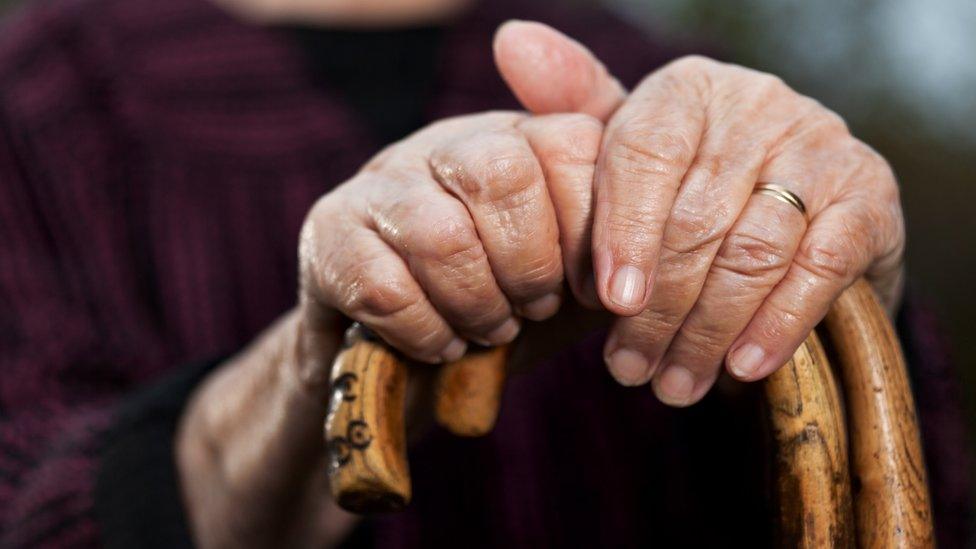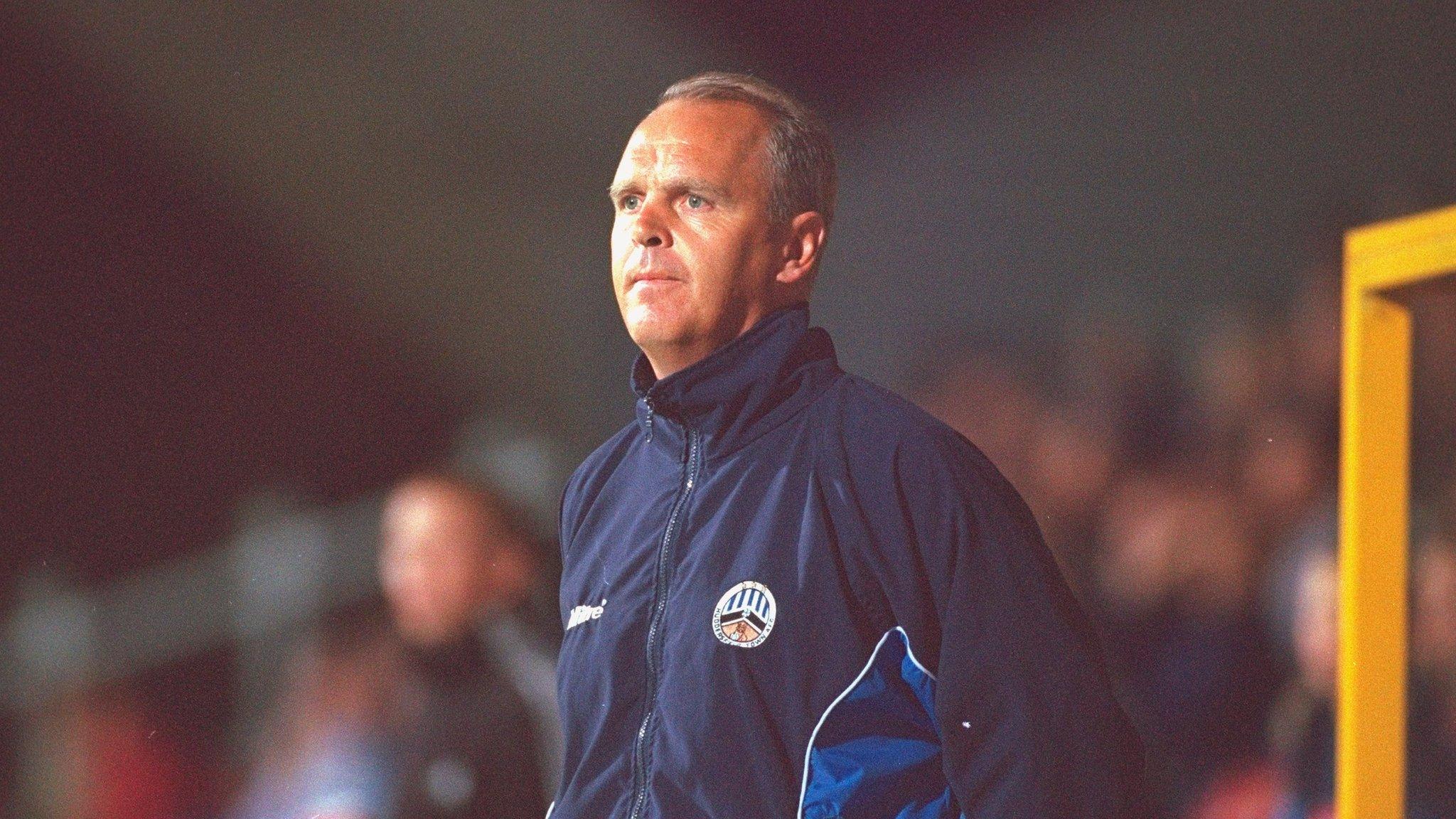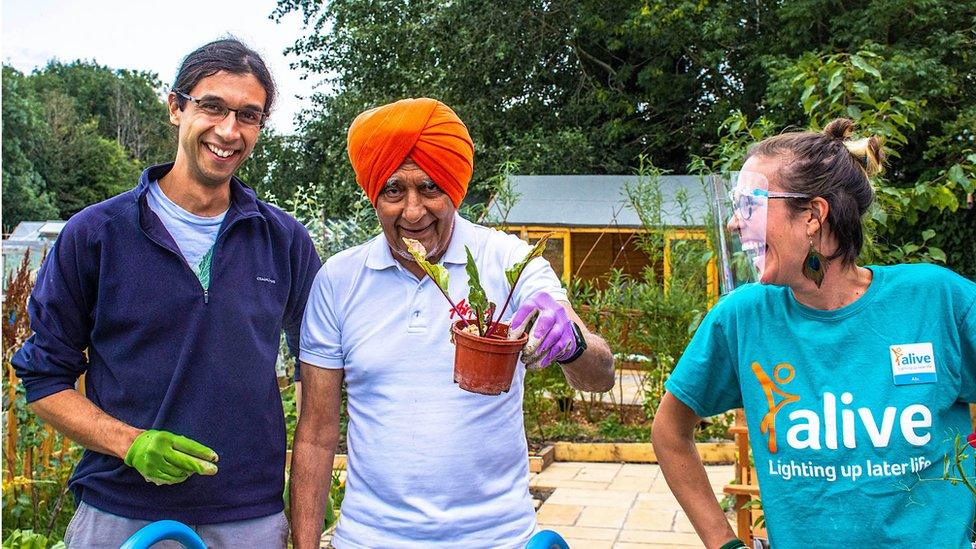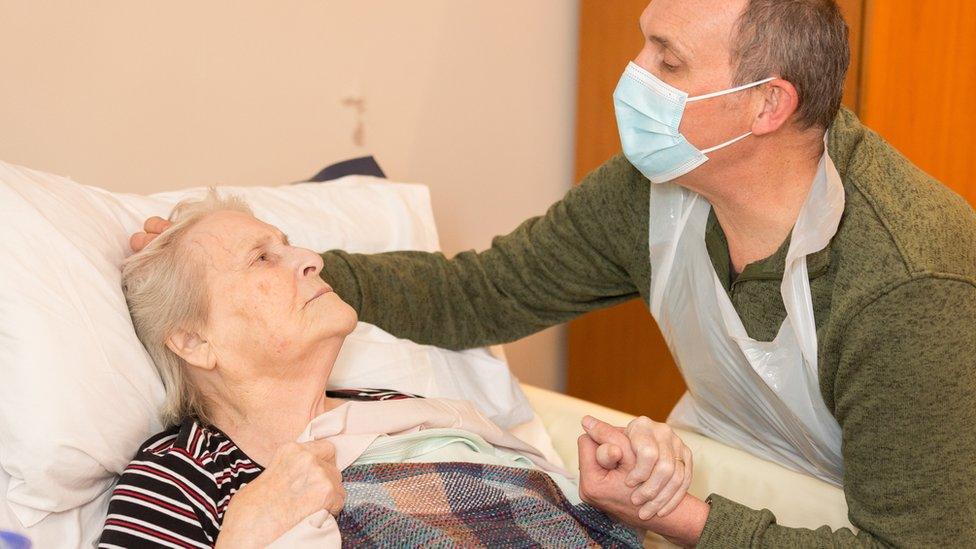Vulnerable people with dementia to be offered GPS trackers
- Published

Avon and Somerset Police said it had identified 30 vulnerable people who would be given the trackers
People with dementia who are at a high risk of going missing are to be offered GPS trackers.
Avon and Somerset Police said donations from local water companies meant it would be able to supply 30 of the devices.
They can be worn on the wrist or on a lanyard around a person's neck.
Sgt Stuart King, who run's the force's dementia safeguarding scheme, said "every minute" counts when a vulnerable person goes missing.
According to data gathered by the University of East Anglia, 70% of those with dementia are at risk of going missing at least once, while 40,000 are reported missing for the first time each year.
Some may go missing multiple times, the research found.
The latest batch of GPS devices, which will be given out by Avon and Somerset Police, were developed by local company MindMe and funded through a £7,000 donation from Bristol Water and Wessex Water.
'Every minute counts'
Police said the devices would first be offered to people it considered to be the most vulnerable, based on risk assessments.
Sgt King said: "Wearable devices are not a substitute for good care but when a vulnerable person is reported missing every minute counts, and that is where modern technology can make a crucial difference.
"I'd strongly encourage anyone caring for a person living with dementia to look into GPS tracking devices if they can."
Sussex Police was the first force to adopt the MindMe technology in 2013.
Avon and Somerset Police already offer those with dementia near-field communication (NFC) wristbands, which electronically store information such as the details of their emergency contacts.
The wristbands have been adopted by a number of forces across the UK, and Avon and Somerset Police have so far allocated 1,600 of them.
A further 1,000 are due to be made available after £2,000 funding was received from Bristol Water, Wessex Water and Western Power Distribution.

Follow BBC West on Facebook, external, Twitter, external and Instagram, external. Send your story ideas to: bristol@bbc.co.uk , external
- Attribution
- Published31 March 2022

- Published8 August 2021

- Published24 December 2020
